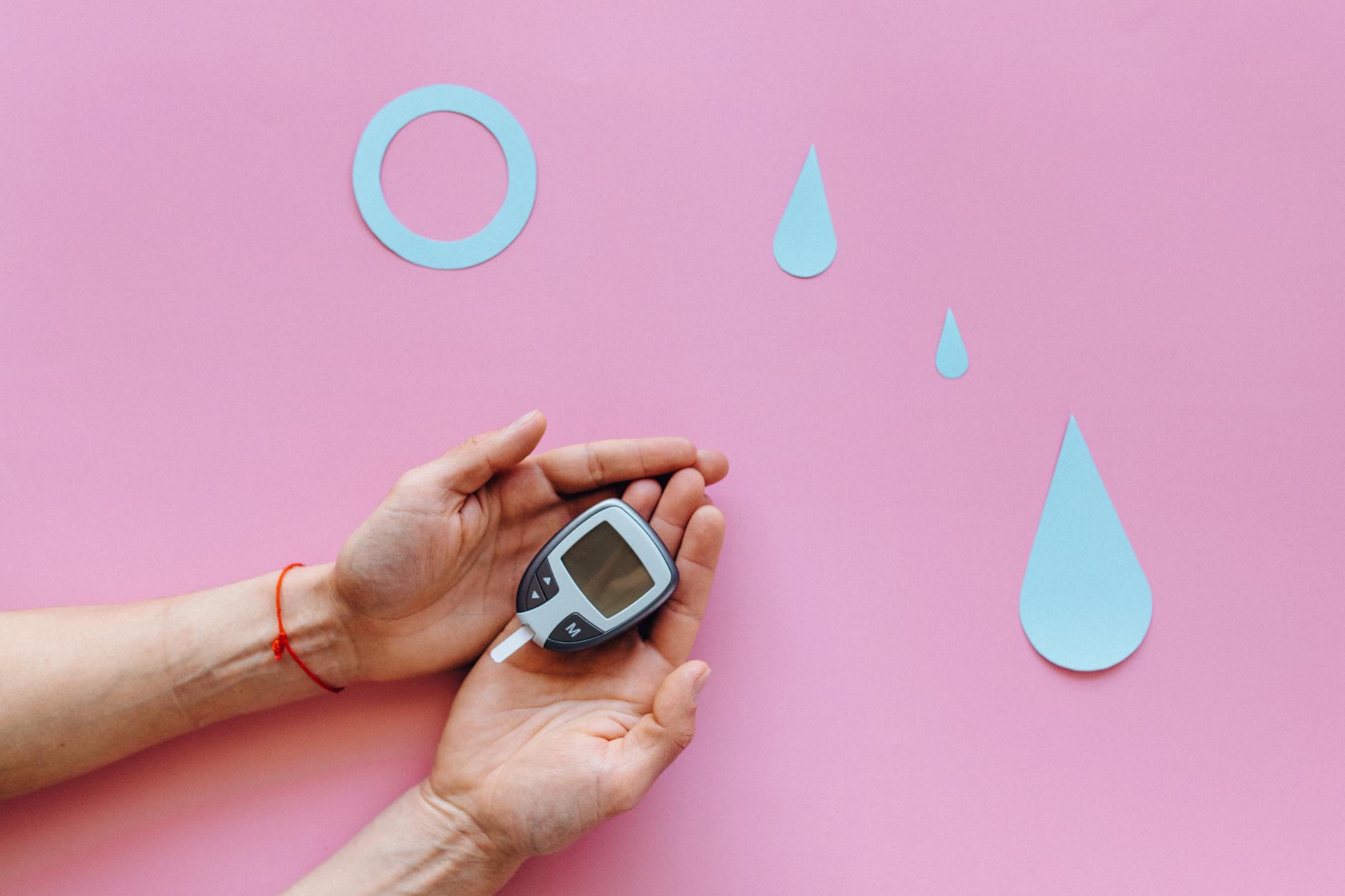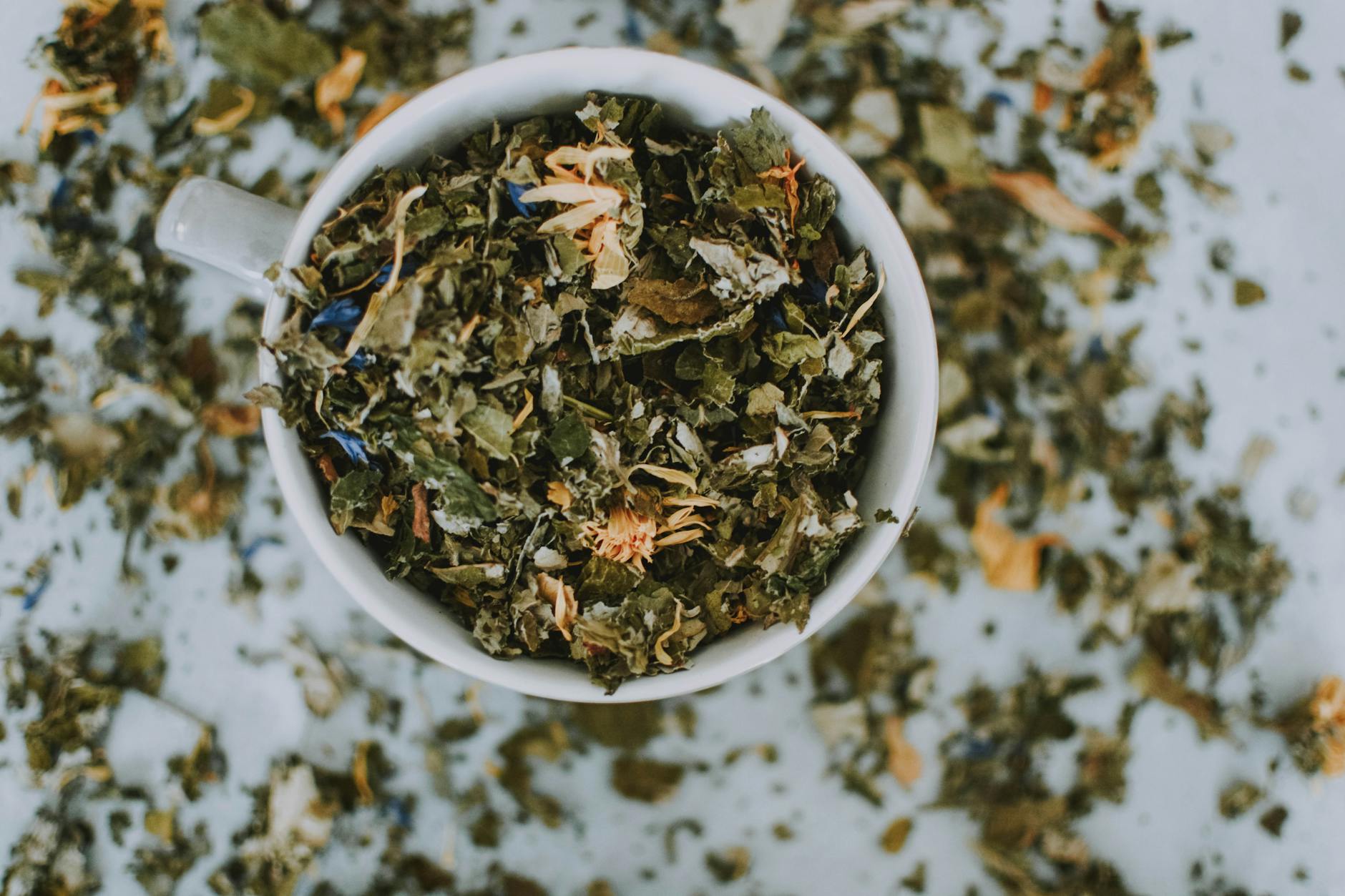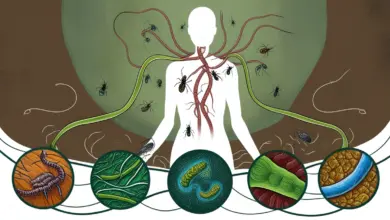Managing Hyperthyroidism and Rheumatoid Arthritis Through TCM: A Holistic Approach

Living with hyperthyroidism or rheumatoid arthritis can feel overwhelming, but you’re not alone. These conditions, though distinct, share complex immune system links. Traditional Chinese Medicine (TCM) offers a unique approach to addressing both. Its focus on balance and natural healing provides relief for symptoms and may even target root causes. Whether it’s acupuncture, herbal remedies, or dietary adjustments, TCM blends ancient wisdom with personalized care, proving to be an effective complement to conventional treatments.
Check out this related video for additional insights: Master the Art of Acupuncture & Chinese Medicine for Thyroid Disorders.
Understanding Hyperthyroidism
Hyperthyroidism, often referred to as an overactive thyroid, is a condition that occurs when the thyroid gland produces excess amounts of the thyroid hormones T3 (triiodothyronine) and T4 (thyroxine). These hormones regulate essential body functions, including metabolism and energy levels. Left unchecked, hyperthyroidism can lead to severe complications. Understanding its causes and symptoms is key to managing this condition effectively.
Causes of Hyperthyroidism
Hyperthyroidism has several causes, with the most common being autoimmune diseases and other thyroid gland disorders. Below are some of the primary causes:
- Graves’ Disease: This autoimmune condition is responsible for the majority of hyperthyroidism cases. The immune system mistakenly attacks the thyroid, causing it to produce too much hormone. For more details, explore Graves’ disease causes from Mayo Clinic.
- Thyroid Nodules: These irregular growths in the thyroid gland can become overactive and trigger hyperthyroidism. In some cases, a single nodule, known as a toxic adenoma, might be the culprit.
- Thyroiditis: This inflammation of the thyroid gland can cause temporary hyperthyroidism as excess hormones leak into the bloodstream. It may result from infections or immune conditions.
- Iodine Excess: Consuming excessive iodine, a key component in thyroid hormone production, can overstimulate the thyroid. This is often linked to diet or iodine-based medications.
For an in-depth exploration, visit NHS’s overview of hyperthyroidism causes.
Symptoms of Hyperthyroidism
Recognizing the symptoms of hyperthyroidism early can prevent escalation and long-term issues. Common physical and emotional indicators include:
- Unintentional Weight Loss: Despite increased appetite, the body burns energy too rapidly, leading to unintended weight loss.
- Increased Heart Rate (Tachycardia): A fast, sometimes irregular heartbeat is a hallmark symptom. In severe cases, it may feel like constant palpitations. Learn more about symptoms on Cleveland Clinic’s page on hyperthyroidism.
- Anxiety and Irritability: The overload of hormones can make you feel restless or overly anxious, similar to being stuck in a constant “fight or flight” mode.
- Sweating and Heat Intolerance: Many individuals feel unusually warm, even in cooler settings, due to the body’s elevated metabolic rate.
- Fatigue and Weakness: While metabolism speeds up, it doesn’t translate into higher energy. Muscles often tire fast, leaving you drained.
- Thinning Hair and Skin Issues: Hormone imbalance affects tissues, leading to brittle hair, hair loss, and sometimes itchy skin.
Additional symptoms like insomnia, tremors, and frequent bowel movements increase the complexity of the diagnosis. To learn about more symptoms in detail, visit MedlinePlus’s resource on hyperthyroidism.
By recognizing the causes and symptoms of hyperthyroidism, you’re better positioned to act early and seek the most suitable treatment plans. The next section will delve into how Traditional Chinese Medicine (TCM) can help balance these disruptions naturally.

Photo by Tima Miroshnichenko
Understanding Rheumatoid Arthritis
Rheumatoid Arthritis (RA) is a chronic inflammatory disorder that primarily affects the joints, but its effects can extend to various body systems. While it is often associated with joint pain and stiffness, RA is a complex autoimmune condition influenced by an interplay of genetic, hormonal, and environmental factors. Understanding these components is crucial in managing RA effectively.
Causes of Rheumatoid Arthritis
While the exact causes of RA remain unclear, researchers have identified several factors that likely contribute to its onset. These factors combine to trigger the immune system into mistakenly attacking healthy joint tissues.
- Genetics: A family history of rheumatoid arthritis increases your likelihood of developing the condition. Specific genetic markers, such as human leukocyte antigen (HLA) variants, can make some people more predisposed to RA. However, having these genes alone doesn’t guarantee it.
- Environmental Triggers: Lifestyle and environmental factors can also play a role. Smoking, for instance, is recognized as a major risk factor and can significantly worsen RA symptoms if already diagnosed. Exposure to certain viruses or bacteria may also act as catalysts.
- Hormonal Influence: RA disproportionately impacts women, suggesting a potential role of hormonal imbalances. For instance, fluctuations in estrogen levels are thought to influence immune activity, contributing to RA’s prevalence among females.
For further insights, check out Rheumatoid Arthritis Causes – Mayo Clinic or Cleveland Clinic on RA.
Symptoms of Rheumatoid Arthritis
Recognizing the symptoms of rheumatoid arthritis at an early stage is critical for preventing joint damage and improving quality of life. Symptoms can vary widely and often develop gradually.
- Joint Pain and Swelling: RA often begins with tenderness in the small joints of your hands, wrists, or feet, progressing to larger joints over time. The swelling may also be accompanied by warmth and redness.
- Morning Stiffness: One of the hallmark symptoms is stiffness in the affected joints, particularly noticeable in the morning or after periods of inactivity. It may last for 30 minutes or even several hours.
- Fatigue: RA isn’t just about joints; it’s systemic. Many people with RA experience persistent fatigue, a sense of overall tiredness, or even flu-like symptoms.
- Other Physical Signs: You may notice firm nodules under the skin near affected joints or experience dryness in the eyes and mouth (linked to Sjögren’s syndrome). In some cases, RA inflames organs like the lungs and heart, leading to more severe complications.
If you’re noticing any of these signs, seek medical advice. Learn more from Rheumatoid Arthritis Symptoms – Hopkins Arthritis or NHS Symptoms of RA.

Photo by Nataliya Vaitkevich
The Role of TCM in Treating Hyperthyroidism and Rheumatoid Arthritis
Traditional Chinese Medicine (TCM) offers a time-tested approach to treating conditions like hyperthyroidism and rheumatoid arthritis. It revolves around restoring harmony in the body, addressing not only the symptoms but their underlying causes. Let’s explore how foundational principles and common treatments in TCM offer a holistic path to well-being.
Principles of TCM Treatment
At the heart of TCM are its foundational concepts—Qi, Yin, Yang, and the Five Elements. These principles guide diagnosis and treatment methods.
- Qi (Vital Energy): Qi flows through the body’s meridians, much like water in a river. When blocked or unbalanced, it can lead to illness. Hyperthyroidism, for instance, is often linked to Qi stagnation in the liver or spleen.
- Yin and Yang Balance: These dual forces must work in harmony. Yin cooling energy and Yang warming energy keep each other in check. Hyperthyroidism may signify excessive Yang energy, resulting in heat symptoms like rapid heartbeat or sweating, while rheumatoid arthritis might reflect a Yin deficiency with symptoms like dry joints or fatigue.
- The Five Elements: Wood, Fire, Earth, Metal, and Water represent facets of the body and are interconnected. A misbalance (like Fire overwhelming Metal) can affect both physical and emotional health. Each element can correspond to organs impacted by arthritis or the thyroid. For an in-depth understanding, visit Healthline’s guide to the Five Elements.
This holistic perspective not only identifies symptoms but connects them to broader systemic imbalances, offering a deeper pathway to healing.
Common TCM Treatments Used
TCM uses various modalities to treat hyperthyroidism and rheumatoid arthritis. These treatments aim to restore balance, alleviate symptoms, and improve the body’s ability to heal itself.

Photo by RDNE Stock project
- Acupuncture:
- Acupuncture targets specific meridians to promote Qi flow. For hyperthyroidism, needles may be placed along points that calm overactive Yang energy. In rheumatoid arthritis, points may help reduce inflammation and ease joint pain.
- Scientific research highlights the benefits of acupuncture in managing autoimmune and thyroid conditions. Learn more about its role in Graves’ disease, a common cause of hyperthyroidism, from this resource on TCM for Graves’ disease.
- Herbal Medicine:
- Customized herbal blends balance Yin and Yang while nourishing affected organs. A common formula for arthritis involves herbs like dang gui (angelica root) to promote blood circulation and reduce swelling.
- For hyperthyroidism, herbs such as huang qin (skullcap) and xiao yao san (Free and Easy Wanderer Powder) address systemic heat and emotional stress. Explore further on effective herbs in this Chinese herbal medicine study.
- Dietary Therapy:
- TCM diet focuses on “cooling” or “warming” foods tailored to individual conditions. Patients with hyperthyroidism might consume cooling foods like cucumber, while those with rheumatoid arthritis benefit from warming foods like ginger to ease cold-induced stiffness.
- Nutritional therapy complements other treatments by nourishing the organs and harmonizing Qi flows.
Together, these treatments create a synergistic approach that empowers the body to restore balance and heal more effectively. By addressing the unique root causes of hyperthyroidism and rheumatoid arthritis, TCM provides a solution that is both ancient and modern.
Looking for more information on these approaches? Check this TCM overview article.
Herbs Commonly Used in TCM for Hyperthyroidism and RA
Traditional Chinese Medicine (TCM) offers a treasure trove of natural remedies for managing hyperthyroidism and rheumatoid arthritis. Herbal medicine holds a central place, providing anti-inflammatory, immune-regulating, and hormone-balancing effects. Below, we discuss some commonly used herbs and their unique benefits.
Tripterygium Glycosides: Efficacy in Treating Inflammatory Conditions
Tripterygium glycosides, extracted from the herb Tripterygium wilfordii (Thunder God Vine), are a potent component in TCM for anti-inflammatory and immunosuppressive treatments. These glycosides work by regulating hormonal imbalances, suppressing overactive immune responses, and reducing inflammation—making them particularly effective for autoimmune diseases like hyperthyroidism and rheumatoid arthritis.
- In Rheumatoid Arthritis (RA): Studies have shown that Tripterygium glycosides significantly alleviate symptoms of RA such as joint swelling, tenderness, and stiffness by dampening overactive immune activity. Additionally, this herb helps reduce inflammatory markers like erythrocyte sedimentation rates and C-reactive proteins. Learn more about its role in RA from ScienceDirect’s recent research.
- In Hyperthyroidism: This herb can balance the body’s excessive heat (Yang) caused by an overactive thyroid. By influencing underlying immune pathways, it indirectly helps in moderating thyroid hormone levels. For detailed research on its efficacy, visit Frontier Pharmacology’s comprehensive review.
Despite its effectiveness, careful administration is crucial due to its potential toxicity. Always consult a TCM practitioner for proper guidance when considering this powerful herb.
Other Notable Herbs
Several other herbs in TCM have displayed profound benefits in managing both hyperthyroidism and rheumatoid arthritis:
- Ginseng (Panax ginseng):
- Considered the “King of Herbs,” ginseng is celebrated for its ability to enhance vitality and improve the body’s resilience to stress.
- For hyperthyroidism, it helps regulate energy levels by nourishing depleted Qi (energy flow) and stabilizing stress-induced hormonal changes.
- In rheumatoid arthritis, ginseng’s anti-inflammatory and antioxidant properties can reduce oxidative stress and improve joint health. Learn more about ginseng’s applications in TCM from Ginseng in TCM.
- Licorice Root (Glycyrrhiza glabra):
- Known as “Gan Cao” in TCM, licorice root is often used as a harmonizing herb in formulas. It provides a sweet, balancing energy while amplifying the effects of other herbs.
- In cases of hyperthyroidism, licorice root harmonizes overactive Yang energy and aids the adrenal glands, reducing fatigue and overexertion of the body’s systems.
- For RA, it acts as a natural anti-inflammatory, soothing swollen joints and easing pain symptoms. Check out a deeper dive into its benefits at Licorice in TCM.
- Skullcap (Huang Qin):
- A cooling herb often used for thyroid disorders like hyperthyroidism. Skullcap’s ability to clear heat from the body assists in calming the nervous system and managing symptoms like rapid heartbeat and sweating.
- Angelica (Dang Gui):
- Commonly incorporated in remedies for RA, Angelica nourishes the blood and improves circulation, reducing inflammation in painful, stiff joints.

Photo by lil artsy
These herbs showcase the depth of TCM in addressing autoimmune health holistically. As always, seek personalized advice from licensed practitioners when integrating these powerful natural options into your care regimen.
Clinical Evidence Supporting TCM Treatments
Scientific studies and clinical trials have begun backing the traditional claims of TCM’s efficacy in managing autoimmune conditions like hyperthyroidism and rheumatoid arthritis. This section explores the evidence behind these treatments, grounding the holistic framework of TCM in measurable outcomes.
Case Studies and Research Findings
Recent research has shed light on TCM’s role in improving outcomes for individuals with hyperthyroidism and rheumatoid arthritis. These findings help validate ancient practices through modern science.

Photo by Tima Miroshnichenko
Hyperthyroidism
A comprehensive study on Chinese herbal medicines found promising results in managing hyperthyroidism symptoms when paired with routine treatment. The research demonstrated improved hormone regulation and reduced side effects compared to conventional therapies alone. For those interested, review the study on Chinese Herbal Medicines for Hyperthyroidism.
Another key trial focused on acupuncture-based treatments for Graves’ hyperthyroidism, a leading cause of the condition. The results showed a significant reduction in hyperthyroid symptoms, reinforcing acupuncture as an effective complementary therapy. Explore the findings in Graves’ Hyperthyroidism Study.
The evidence points to TCM techniques regulating excessive Yang energy and mitigating thyroid inflammation while restoring Qi flow.
Rheumatoid Arthritis
For rheumatoid arthritis, multiple studies highlight the efficacy of combining TCM practices with conventional approaches. One standout review detailed the use of Tripterygium glycosides (extracted from Thunder God Vine). This treatment showed substantial reduction in joint inflammation, pain, and stiffness without major risks. For detailed insights, explore this Tripterygium Glycosides Article.
A 2024 study found that long-term TCM regimens, such as herbal combinations and acupuncture, not only improved morning stiffness and pain but enhanced overall quality of life for RA patients. Check out the findings in TCM’s Impact on RA.
TCM’s focus on Qi and element harmony may account for its efficacy in reducing inflammatory markers, such as C-reactive protein, while balancing immune responses.
Broader Systematic Reviews
Further systematic reviews, like the one published on the benefits of TCM for rheumatoid arthritis in PMC, emphasize its broad-spectrum potential. From herbal formulas to dietary therapies, these approaches integrate seamlessly with modern medicine.
The strong clinical backing for TCM isn’t just anecdotal anymore. Advancements in research bridge the gap between traditional knowledge and empirical evidence, creating more comprehensive treatment pathways for individuals managing hyperthyroidism and rheumatoid arthritis.
Integrating TCM with Conventional Medicine
Combining Traditional Chinese Medicine (TCM) with conventional medical treatments creates a more holistic approach to health care. By addressing both symptom relief and the root causes of conditions like hyperthyroidism and rheumatoid arthritis, this integration offers a tailored path to healing that respects the strengths of both methodologies.
Benefits of Integration: Highlight how TCM can complement conventional treatments for better outcomes
When it comes to treating complex conditions such as hyperthyroidism and rheumatoid arthritis, blending TCM with conventional medicine can result in numerous benefits, allowing the best of both worlds.

Photo by RDNE Stock project
- Personalized Treatment: Conventional medicine excels in targeted interventions, such as medication or surgical treatments. TCM complements this with a personalized approach that considers a person’s overall energy balance, emotional state, and lifestyle.
- Reduced Side Effects: Conventional treatments, such as steroids or antithyroid drugs, can sometimes produce unwanted side effects. Techniques like acupuncture and herbal medicine have been found to minimize these effects, offering symptom relief in a gentler way. Learn more about this synergy from this comprehensive article.
- Better Chronic Condition Management: Hyperthyroidism and rheumatoid arthritis often require long-term care. Integrating TCM techniques like dietary therapy or Qi Gong can support immune system function naturally, reducing reliance on medication.
- Improved Healing and Recovery: Acupuncture and herbal treatments have shown promise in boosting the body’s healing processes, including hormone regulation and reduced inflammation. For instance, combining acupuncture with medical care has been linked to enhanced pain management, as reviewed in this study.
TCM and Western medicine are not competing paradigms; instead, they operate like the Yin and Yang. Together, they optimize each other for the patient’s benefit.
Potential Risks and Considerations: Address possible interactions and the importance of professional guidance
While the benefits of integration are promising, it’s essential to proceed with care. Combining TCM with conventional treatments requires professional oversight to prevent potential risks.
- Herbal Interference with Medications: Certain Chinese herbs may interact with medications prescribed for hyperthyroidism or RA. For example, the herb licorice root could alter corticosteroid activity. Consulting with a skilled practitioner is vital to ensuring safety. Learn more about herb-drug interactions from this resource.
- Unregulated Products: Some herbal products may contain contaminants or inconsistent dosages, especially if they are not sourced from reputable providers. Always purchase from certified providers recommended by your healthcare team.
- Misguided Applications: Not all conditions are suited to TCM treatments. While TCM can address the root imbalance of hyperthyroidism or arthritis, some acute symptoms may require immediate conventional intervention.
- Lack of Communication between Practitioners: Successful integration depends on open dialogue between medical doctors and TCM practitioners. Miscommunication could lead to overlapping or conflicting therapies.
TCM is powerful, but it’s not a replacement for evidence-based medicine. Instead, it’s an enhancement, much like how complementary colors make each other more vivid. Make sure to work closely with both a trusted medical doctor and an experienced TCM practitioner to create a safe, synergistic treatment plan. For a balanced perspective, explore this detailed study.
Key Takeaways
Hyperthyroidism and rheumatoid arthritis are complex conditions deeply tied to immune system dysfunction. Traditional Chinese Medicine (TCM) provides a holistic approach to managing these illnesses, focusing on balance and root cause resolution. Below are the essential points to consider about TCM’s role in treating these disorders:
Hyperthyroidism Findings
- Underlying Imbalances: TCM identifies hyperthyroidism as an excess of Yang energy or heat in the body. Symptoms like rapid heartbeat and overheating are linked to these imbalances. Techniques such as acupuncture and herbal medicines aim to cool the body and harmonize Yin-Yang.
- Treatment Efficacies: Herbal formulas and acupuncture have shown to regulate thyroid hormone production effectively. Research highlights relief from symptoms like palpitations, anxiety, and fatigue by reducing systemic heat while addressing underlying immune dysfunction. Studies like this one support the ability of TCM to moderate autoimmune thyroid diseases like Graves’ hyperthyroidism.
Rheumatoid Arthritis Insights
- Holistic Focus: In TCM, rheumatoid arthritis often corresponds to “Cold,” “Heat,” or “Deficient Qi” patterns, manifesting as joint stiffness, pain, and fatigue. Treatments are individualized, targeting systemic and local imbalances.
- Herbal Support: Herbs such as Angelica and Thunder God Vine are widely used to reduce inflammation and pain while nourishing essential energy flows. Recent systematic reviews highlight the effectiveness of combinations like Qingre Huoxue for symptom relief (source).
- Acupuncture and Beyond: Studies have shown acupuncture not only alleviates joint pain but also reduces markers of inflammation like CRP, enhancing physical function. Evidence such as this review confirms its value in long-term care plans.
Connections Between the Two
- Autoimmune Link: Both conditions share an autoimmune nature, making TCM’s emphasis on regulating immune system responses highly relevant.
- Comprehensive Care: By treating systemic patterns rather than focusing exclusively on isolated symptoms, TCM addresses the common thread of chronic inflammation and immune dysregulation in both hyperthyroidism and rheumatoid arthritis.
Traditional Chinese Medicine offers a time-tested, complementary approach that empowers patients, blending seamlessly with modern medicine for improved health outcomes. For more detailed clinical insights, explore this systematic review.

Photo by Nataliya Vaitkevich
Conclusion
Traditional Chinese Medicine (TCM) offers a meaningful way to manage hyperthyroidism and rheumatoid arthritis. Its personalized treatments aim at restoring balance and addressing root causes, rather than just alleviating symptoms. By doing so, TCM complements Western approaches, providing a broader scope for healing and better quality of life.
Exploring TCM as part of your treatment plan is a step toward holistic care. Partnering with knowledgeable practitioners ensures safety and tailored recommendations. Share your thoughts or experiences with TCM and see how this ancient method can be a modern support system for chronic conditions.




